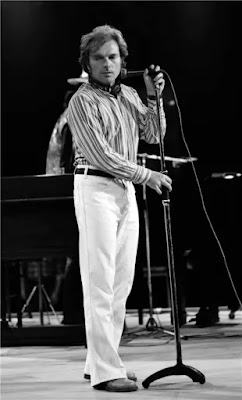Escrita por Peter Cetera, foi gravada entre abril e junho de 1977 e lançada em 12 de setembro de 1977, no disco Chicago XI, o nono disco da banda. Sairia também em compacto na mesma data, com Takin' it on uptown como Lado B. Foi produzida por James William Guercio. Chegou ao número 4 do Billboard Hot100. Foi o último top 10 deles antes da morte do guitarrista Terry Kath e também o último top 10 deles sob a produção de Guercio. Chegou também ao número 3 no Canadá, número 4 na Holanda, número 9 na Áustria, número 12 na Suécia, número 14 na Austrália, número 19 na Suíça e Nova Zelândia, número 38 na França e número 41 no Reino Unido. Foi regravada pelo próprio Cetera, anos depois. Robert Lamm tocou piano e fez backing vocals. Terry Kath tocou guitarra e percussão. Peter Cetera cantou e tocou baixo. James Pankow tocou trombone, teclado, percussão e fez backing vocals. Walt Parazaider tocou sax, flaura e clarinete. Danny Seraphine tocou bateria e percussão. Jimmy Guercio tocou violão e baixo. Carl Wilson (dos Beach Boys) e Tim Cetera fizeram backing vocals.
A letra:
Right
before my very eyes
I thought that you were only fakin' it
And
like before my heart was takin' it
Baby what a big surprise
Right
before my very eyes
Oh, oh, oh, woah, oh
Yesterday it seemed to me
My life
was nothing more than wasted time
But here today you've softly
changed my mind
Baby, what a big surprise
Right
before my very eyes, oh, oh
Oh, woah, oh, oh
Just to be alone
Was a little more
than I could take
Then you came to stay, oh
Hold me in the
morning
Love me in the afternoon
Help me find my way, hey yeah
Now and then just like before
I
think about the love I've thrown away
But now it doesn't matter
anyway
Baby what a big surprise
Right
before my very eyes
Oh, oh, oh, woah, oh
Baby what a big
surprise
Right before my very eyes
Oh, oh, oh, woah, oh
Baby
what a big surprise
Right before my very eyes
Oh, oh, oh, woah,
oh
Baby what a big surprise
Right before my very eyes
Oh,
oh, oh, woah, oh
Baby what a big surprise
A versão do Chicago:
A versão de Peter Cetera:


















